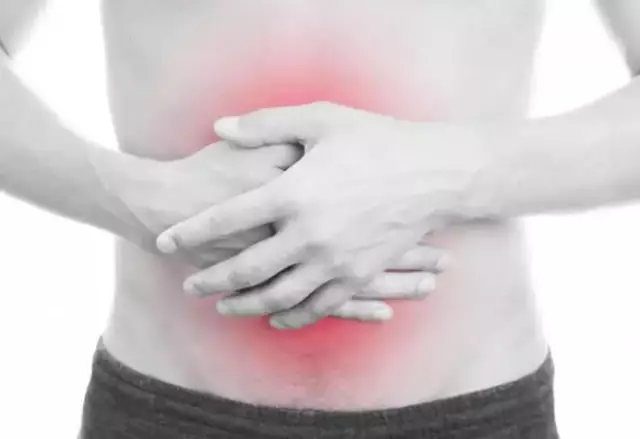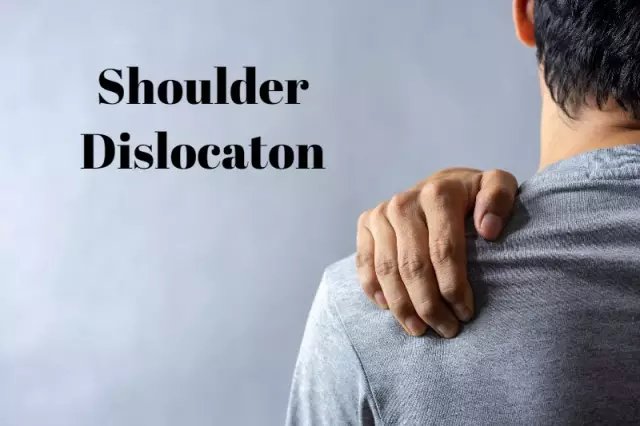- Author Rachel Wainwright wainwright@abchealthonline.com.
- Public 2023-12-15 07:39.
- Last modified 2025-11-02 20:14.
Dysphagia
Dysphagia - difficulty swallowing, is a symptom of diseases of the upper gastrointestinal tract and nervous system. Dysphagia, even episodic, and especially often recurring and even more constant, requires a visit to a doctor and a thorough diagnosis, since the diseases in which it manifests itself are very serious.
Dysphagia Causes

Depending on the underlying cause, dysphagia can be:
- True;
- Functional, when there are no mechanical obstacles to the swallowing process, but there are only disorders of the nervous system;
- Caused by organic lesions, when there are diseases of the upper gastrointestinal tract or adjacent organs, which impede the passage of the food bolus.
The most common cause of dysphagia is precisely diseases of the esophagus, which create mechanical obstacles to the movement of the food bolus. This condition is called esophageal dysphagia. The causes of esophageal dysphagia are as follows: esophageal ulcer, esophagitis (inflammation of the esophageal mucosa), esophageal stricture - cicatricial post-traumatic narrowing of the esophagus, esophageal tumor.
In addition, the cause of dysphagia can be diseases of the organs adjacent to the esophagus, in which it is compressed. For example, hernia of the esophageal diaphragm, nodular goiter, aortic aneurysm, mediastinal tumor, etc.
Dysphagia symptoms
True dysphagia, a violation of swallowing proper, that is, the movement of the food lump from the mouth into the pharynx, occurs when the nerve centers that control the act of swallowing are damaged, as a result of which this harmonious process is imbalanced, and the contents of the food lump, when trying to swallow it, does not enter the esophagus, but in the respiratory tract - nasopharynx, larynx, trachea. As a result, there is a spasm of the airways, up to choking, and a strong reflex cough occurs.
Functional dysphagia occurs with functional disorders of the nervous system - increased excitability, neuroses, etc. In this case, the symptoms of dysphagia appear sporadically, as a rule, they are provoked by one or more types of food (solid, liquid, spicy, etc.). In this case, the food lump usually does not enter the respiratory tract, but swallowing is difficult, and its movement along the esophagus is accompanied by unpleasant and painful sensations.

With dysphagia of the esophagus, the act of swallowing itself is not disturbed, but the passage of the food bolus is accompanied by pain in the upper abdomen, heartburn, and sometimes belching. An unpleasant taste appears in the mouth, regurgitation is observed - the throwing of the contents of the stomach into the pharynx and the oral cavity. Regurgitation increases with a tilted position of the body, as well as during sleep, especially if the meal was less than two hours before bedtime. Symptoms of dysphagia with esophagitis can include hoarseness, increased salivation, and choking. Dysphagia of the esophagus is more often caused by solid food, its distinctive feature is that drinking water facilitates the process, and when taking liquid or mushy food, the symptoms of dysphagia are less pronounced, although esophageal dysphagia with esophagitis can also occur when taking liquids.
Diagnosing dysphagia
Since dysphagia is a symptom of a disease and not an independent disease, careful diagnosis is necessary to identify the disease that caused the dysphagia. First, a gastroenterological examination is carried out, the main method of which in this case is FGDS - fibrogastroduodenoscopy, endoscopic examination, which allows examining the mucous membrane of the upper part of the gastrointestinal tract and identifying the existing pathology. If a tumor or ulcer is found, a biopsy is performed, followed by a histological examination, and if signs of esophagitis are found, the contents of the esophagus are taken for bacteriological inoculation in order to identify the pathogen.
In the event that the cause of dysphagia has not been found with the help of a gastroenterological examination, a neurological examination is performed, revealing the affected nervous structure.
Dysphagia treatment
Treatment of dysphagia is reduced to the use of local remedies that relieve its symptoms, since the main therapeutic measures are taken in relation to the disease that caused the dysphagia.
Treatment often consists of emergency treatment for acute symptoms of dysphagia. So, in the case of true dysphagia, it is first of all necessary to thoroughly clear the airways from the food that has got into them, making sure that the patient does not suffocate. Further treatment of true dysphagia is carried out in a hospital, in severe cases food and water are introduced into the esophagus through a tube.
Urgent treatment of dysphagia caused by inflammation of the esophagus consists in taking antacid aluminum-containing agents (reducing acidity, the so-called “heartburn medicine” such as Phosphalugel, Almagel, etc.) or taking an effervescent tablet of Zantac, dissolved in a glass of water. Subsequent treatment for dysphagia consists of treating esophagitis.
With dysphagia of the esophagus, it is necessary to comply with certain rules of eating behavior and diet. So, fractional meals are recommended in small portions (at least 4 times a day), the food should not be dry and hard, it must be thoroughly chewed. Hastily and dry meals are prohibited. After eating, it is necessary to avoid bending forward for 1.5-2 hours to avoid regurgitation. The last meal should be no later than 2 hours before bedtime.

If the patient has dysphagia of the esophagus, his diet should consist of food that is easy to digest: vegetables, cooked or steamed, lean meats, fish and poultry, and preference should be given to white meat, excluding fatty, fried and smoked foods, as well as spicy and spicy. Fast food and all kinds of fizzy drinks, as well as strong tea and coffee are prohibited. Alcohol is completely excluded. Coarse plant fiber should also be avoided. Dairy and fermented milk products are recommended, in general, preference should be given to a dairy-plant diet, with the addition of mucous soups and cereals.
YouTube video related to the article:
The information is generalized and provided for informational purposes only. At the first sign of illness, see your doctor. Self-medication is hazardous to health!






